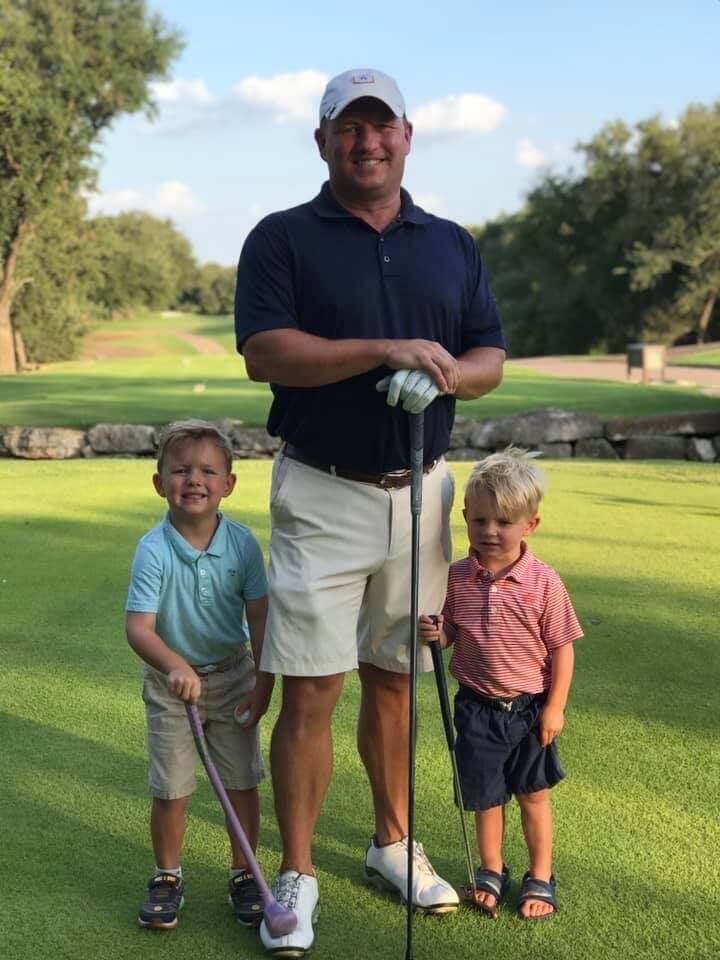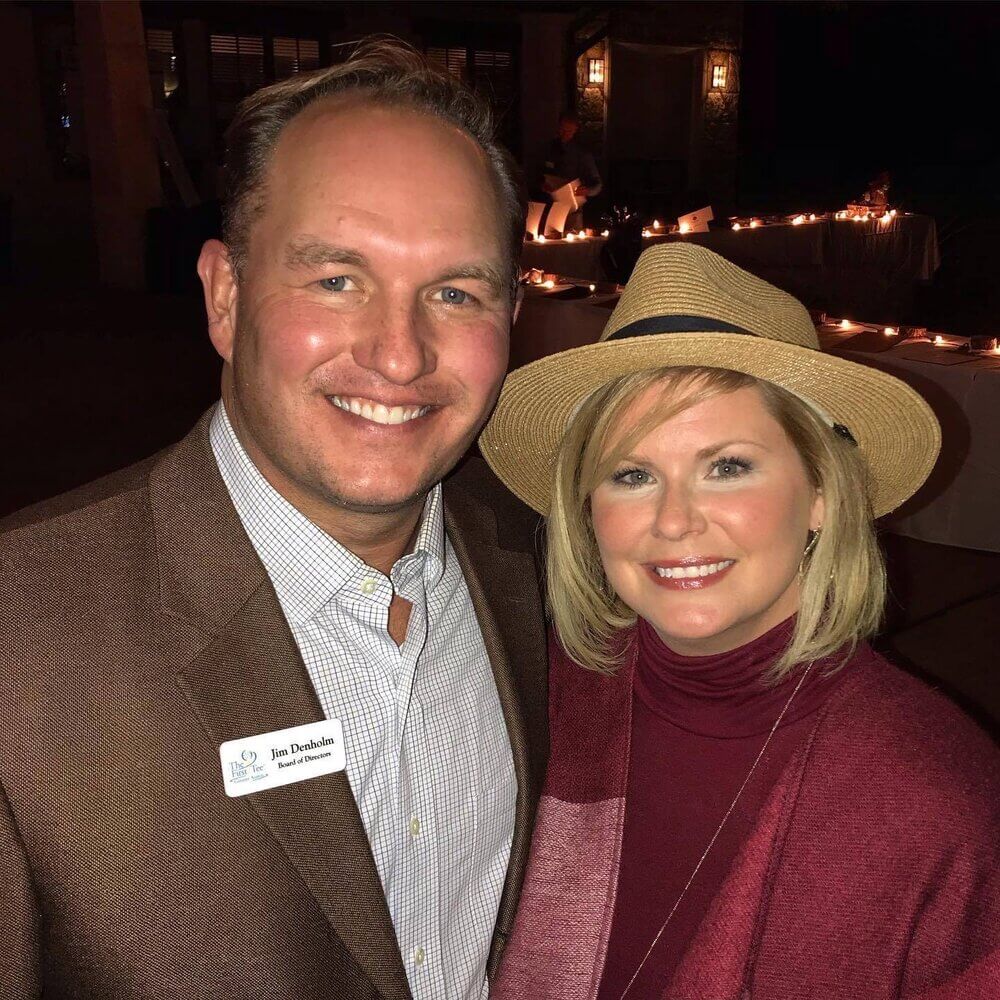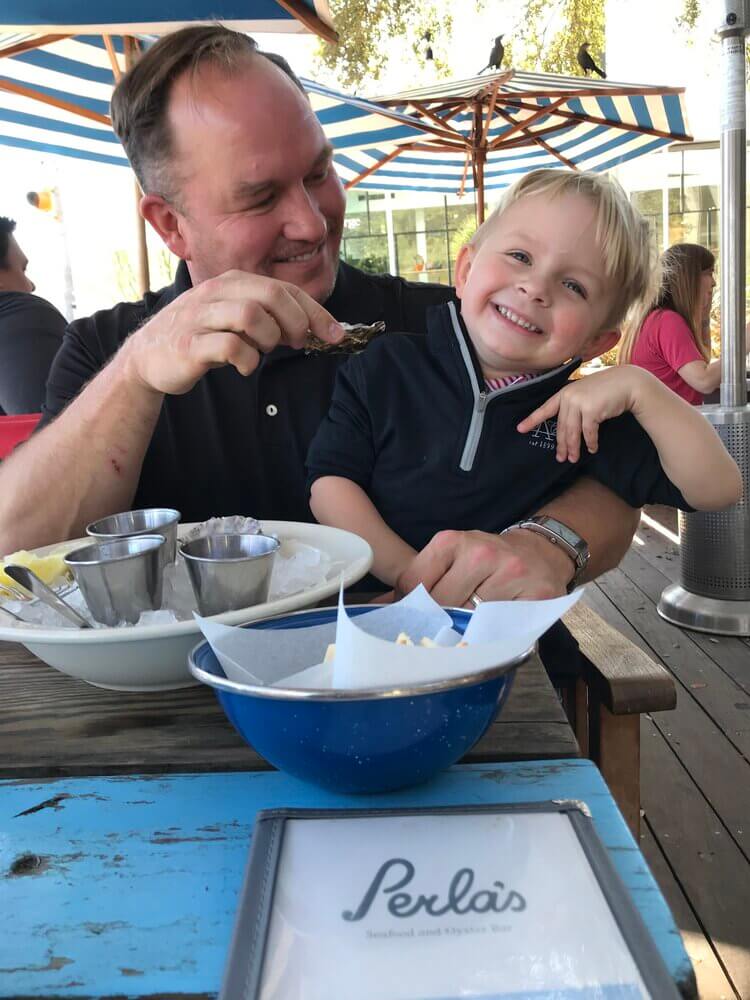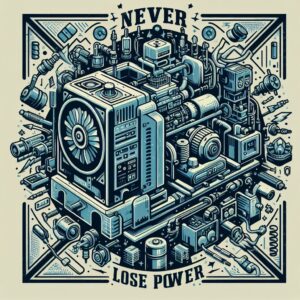“If you just put your client’s best interest first and you think about how you can help other people, you work really hard at trying to serve people well, you can not only get through those difficult environments but you can really thrive.”
Many of us don’t often take time to reflect on our careers, what it took to get here and where we’re headed. As part of an ongoing series we’re interviewing professionals in and around the financial industries to share their stories and wisdom for younger professionals to consider as they forge their own careers. Jim is the founder and director of ironbridge private wealth, an austin-based independent financial firm.
JCDP:
How did you get started in your journey to get where you are today?
Jim Denholm:
I think like a lot of people in college, I wasn’t quite sure exactly what I wanted to do. I earned a mechanical engineering degree from the University of Texas and I knew I was drawn to different things with science and numbers, but I was never really sure what I wanted to do with it. I started dabbling in stocks and it got me fascinated with financial markets. This was the mid to late 90s, so everything was going up. I was suddenly reading The Wall Street Journal and watching CNBC, stumbling into the financial world. The other thing is that I had a class in college for my engineering degree where we had to design ball bearings and, no offense to ball bearings manufacturers, but it was not something that I wanted to do the rest of my life.
I actually was tempted to make an educational switch late in my schooling, but I had a couple of good friends that kept me on track and helped get me across the finish line to receive my engineering degree. After I graduated, I had two job offers. One was an engineering job offer designing HVAC systems for strip malls. It didn’t seem very exciting, but it paid well and had good benefits, so it was pretty attractive. My second job offer from Morgan Stanley Dean Witter, where I would be an entry level financial adviser. Basically, if you can fog a mirror, you could get hired at that job. It was a 95% failure rate and it only paid about $20,000 a year. I just thought, I can try it and if I fail, that’s okay.
I remember during the interview with Morgan Stanley, they flat out asked, “Why would we hire someone with an engineering degree?”
Engineering is a great foundational degree. You’re taught how to problem solve so it kind of fits naturally with portfolio construction and financial planning. I found it appealing to go to the service side, as well. In fact, the more I thought about what a career would look like in financial advising, I was really drawn to it.
JCDP:
What was that transition like from studying engineering to working in finance?
Jim Denholm:
Once I got the job offer and accepted it, I had to do nine months of study since there were different licensing exams that you have to take in order to even be a financial advisor. On my first day, they set a book on my desk that was about 700 pages thick and said, “Here, you’ve got four months to study for this. If you fail, you’re fired.”
I studied for eight or nine hours a day from this huge book that had a combination of the foundational things that you have to learn about stocks, bonds and mutual funds. I took the exam about four months later and fortunately passed.
At the time, Morgan Stanley was the biggest tenant in the World Trade Center. After passing my exams, the last part of my training was to spend three weeks in the World Trade Center. I went to New York and became fully licensed. During these three weeks, I dove into real life experience about developing a business plan and practicing talking to potential clients. My last day of training in the World Trade Center was September 6th, 2001.
Monday, September 10th, was my first day in my career and I made about 400 cold calls to potential clients. I had a giant list of names and phone numbers, and I really knew nothing about the people on the other end. I executed my business plan that I developed for one day, because the next day, September 11th, changed everything. It was a really spooky, weird and kind of freaky way to start.
I had to adjust what the script was because the things that we were talking about that I practiced seemed very coarse and inappropriate following the event. I had to adapt and make sure that I had goals, while still trying to make a living. That week was a little bit of a blur. I thought about what would be appropriate to reach out and talk to people about.
It became very evident that what I was going to do in this new career was be all about helping people. It was all about trying to do the right thing. We offered free financial reviews and there was a lot of volatility and a lot of uncertainty. The markets were closed down for a week and a half because the stock exchange was within a couple blocks of the World Trade Center. It was a very difficult time, but it was extremely helpful to be able to have a different perspective and make this mental shift from sales to helping people. I think that experience very early in my career, day two of my career was one of the main reasons that I was able to stay in the business and see some success with it.
My first job with Morgan Stanley was at a home-base in Florida, because my father and grandmother lived there. We were in a downtown office building that had the entire floor and there were about 50 different offices with successful people who have been in the industry for 20, 30 or even 40 years. I went around to each of these more experienced and tenured people and said, “Look, I’ll do three hours of grunt work, but in return can you give me 15 minutes of your time and some advice?” I would try to leverage some other people’s experience so that I could avoid mistakes that other people made.
About six months into the job, once I recognized that I could do it and that I was maybe good at it, I decided I wanted to live in Austin, Texas again. I had Morgan Stanley transfer me to Austin and since I had a little bit of experience, I shot my resume around. I was hired by JP Morgan Chase and this was when my career started to take off.
I was put in a team environment of about three people who had their own specific roles. At Morgan Stanley, I was doing everything myself so with the teams at JP Morgan, I was able to focus on portfolio management and financial planning for my clients. I learned the value of teamwork really early on.

JCDP:
What was the biggest challenge or learning experience that you had at beginning your career?
Jim Denholm:
I think the biggest challenge at that point was simply the fact that I hadn’t been in the business very long and my age. I was only 23 years old, trying to convince someone that they should trust me with their entire financial life or some sort of substantial part of their financial life. It’s a very emotional decision for a client to trust you with that and so I think that the biggest challenge to have to overcome is my relative inexperience when dealing with people’s life savings.
That’s where the power of the team helped. I wasn’t trying to do it myself anymore.I don’t think I would have been able to do it without a team in general. I was very fortunate to have two ladies on my team who I got along with extremely well and together we all made a great partnership. They were very instrumental in the success that I’ve had.
I now own a small investment firm and we pride ourselves on not being part of the big banks and the big firms, but starting out there is a tremendous benefit for a young person to have the power of a brand of a big bank like that on your resume.
JCDP:
Were those ladies someone you reached out to in a sort of formal mentorship, the way you have done in Florida?
Jim Denholm:
The business strategy for JP Morgan at the time was to have a team based approach. You could ultimately leverage each other’s strengths. On my team, Melissa Fleming, was really, really good at prospecting and getting clients in the door. On the other hand, I was really good at closing the business. My other team member was Rhoda Koenig and she is actually retired now. I was very fortunate to have them as partners.
JCDP:
That’s always beneficial when you’re set as a team and it works out well.
Jim Denholm:
I’m still applying that today. I think it’s beneficial to have different points of view and different personalities working together. When everybody is working towards the same goal, it can really be powerful. That was another really good thing to learn very early in my career.

“I think it’s beneficial to have different points of view and different personalities working together.”
JCDP:
From flourishing in a team environment, we’re there any particular principles that you employ when building or assembling your teams with your business now?
Jim Denholm:
I’m not an expert in building teams and there’s five of us in my firm now. For the most part, my team has consisted of people that I’ve grown to know over time. I think the best thing you can do is be able to allow someone to use their strengths and give them the autonomy to be able to use those strengths. You’re hiring somebody for a reason, and that’s hopefully because they’re good at what they do. I think that autonomy is very, very helpful, especially when we’re going through a strange period of time like we are right now, where everybody is working from their own home.
If you want to micromanage, you’re going to have a really tough time doing it in this current pandemic environment. It’s been nice for us to be able to work remotely and people are going to get pulled in different ways. Some people have families and some are going through different struggles than others. They have enough time to be able to deal with all that and trust that they’re making the right decisions. As long as things are productive and everybody’s getting done what they need to get done, I don’t care if they’re spending extra time with family or spending time out at the lake. You hire people to get their job done and you have to have a certain level of trust that they’re going to do that. That’s what our clients expect of us. They trust us to make decisions and recommendations on their behalf. They don’t have to micromanage us to get things done for them and that’s the same approach that I take with my team.
JCDP:
What was the next step in your career after JP Morgan?
Jim Denholm:
I was at JP Morgan for about five years and we were one of the top performing teams. In 2005, Wachovia Bank which is no longer a bank, moved into Austin and our team was hired to start a private bank. That was one of the most fun times in my career. It was very much like a startup feel, but we had the resources of a big bank. They were building bank branches until there were one or two on every corner. They made a huge push into the Texas market. There are some really good people that Wachovia hired, so we went from kind of this smaller, more nuclear team to this much bigger, broader team.
It’s probably the busiest I’ve ever been from from a workload perspective. We had a few good years there, then the financial crisis happened. We were going through the early part of the 2008 crash and taking steps to make clients portfolios more conservative and raising cash. All of a sudden that summer, there started to be some legitimate concern about whether Wachoiva will be able to survive. It added this whole additional layer of complexity on top of everything. Am I going to have a job? Is the bank going to go under? What’s going to happen to take all this cash that we’ve been raising for clients? Is that just going to go away? We had to work very diligently to make sure our clients were protected through it.
In October 2008. I was getting recruited by Wells Fargo and they wanted to hire me and my team to leave Wachovia to join them. As I was getting closer in negotiations with them, I woke up one morning to find that Wells Fargo had bought Wachovia. I called up the guy I was dealing with and I said, “Are we still going to be able to make that signing bonus happen?”. They said ‘no’, but it was nice going through that knowing that we had a seat at the table of the combined firm. So the next evolution was that transition from Wachovia into Wells Fargo after the shotgun marriage of 2008.

“We deal in Trust. This industry is about trust.”
JCDP:
Do you see the industry changing now? What are you doing to prepare for that?
Jim Denholm:
I think that the financial services industry is in the very early stages of a pretty massive transformation. One thing that’s been happening is what’s called fee compression. At one point when I started my career, there were differences between what one firm offered over one another firm. Traditionally, a big firm with a lot of resources would have a truly differentiated investment platform by investing in that platform. That was the competitive advantage for big firms. That entire model is completely reversed now.
There are the investment products and the ability for someone to invest in different things have been completely commoditized. You can’t go into a Morgan Stanley and get something different than what you can get at a Merrill Lynch. The hurdle to getting access to specific types of investments have gone away. The other thing is that because it’s been commoditized, the consumers are getting lower fees.
For certain clients, they have to be qualified clients and there’s S.E.C. regulations as far as who we can offer these types of fee structures to, they have to have a certain net worth or specific number of assets with us. We can offer a very low fee structure that’s much lower than the average fee rate across the industry. If we do well and we hit certain return targets for the year, we get a success fee and we earn our fees through delivering results. The flip side of it is if the portfolio’s decline above a certain amount, we’re cutting our fee for the next year. We’re really trying to align our approach with our client’s success. I think that’s going to be something that is more prevalent over time, where there’s either going to be a continued downward pressure on fees in the industry or you’re going to have to add services for the same fee rate. Our approach is that we can make it very comprehensive, but then pay us based on the results that we deliver.
The bigger firms, I think, are now at more of a competitive disadvantage. Their attorneys are driving the ships. They want a homogenized approach.
They want a potential client who lives in Dallas, Austin, Miami, Washington, D.C or anywhere across the country to to walk into one of their locations and have the exact same experience. It’s having the Starbucks approach for financial services. When you go get a cup of coffee in Hong Kong, it’s the same cup of coffee that you get in Austin. The problem is this is a very personal and very emotional kind of currency that we deal in. We deal in Trust. This industry is about trust. And, you know, people get pretty specific about that cup of coffee, but it’s still a cup of coffee.
Our clients want to know what’s going on and they want to know what we’re doing to handle it. That’s difficult to achieve when everything looks the same. I really think that the smaller firms, the firms like ours, the firms that are just not the giant behemoths, are really at a competitive advantage over the big people right now. I see that continuing for the next 20 years.
JCDP:
What advice would you give to your younger self?
Jim Denholm:
I would say just continue to stick with it. There are times where the future looks very uncertain and there are times where it seems like you are not on the right path. As long as you’re trying to work smart and you put in the extra effort, you can get out the other side better than how you came into it. You know, there’s been some really big things that have happened in this industry. If you just put your client’s best interest first and you think about how you can help other people, you work really hard at trying to serve people well, you can not only get through those difficult environments but you can really thrive. You can come out the other side in such a better position, personally, professionally, by making sure that you’re sticking with it and that you recognize that these difficult times can be temporary. Just really work hard through it and try to work very smartly through it so you can take advantage of what seems to be an obstacle. That obstacle may even be one of the best things that could ever happen to you.





